If you look back on your first Moroccan holiday with slight disappointment, there’s usually one reason. At some point on your travels, you were ripped off. Such disappointments can be avoided if you know how to spot the typical types of fraud. So, here’s an overview of the notorious rip-offs, rotten tricks and romance scams that can take place in Morocco.
A rather unpleasant encounter you’ll inevitably suffer as a tourist in Morocco is the offensive business practices of some Moroccans. I’m not referring to the negotiating skills of many of the tradespeople, but the multitude of little scams and everyday rip-offs. They certainly have just what it takes to spoil someone’s holiday if they’re gullible enough when on their Morocco adventures.
This article is very long and you’ll need to invest a bit of time if you want to read about all the scams I’ve listed. You can use the table of contents to jump to specific sections in the text.
Contents
Introduction
You’ll encounter frauds and rip-offs and fake guides in every country in the world, especially in the big cities. For example, if you were looking at a website about Thailand, this article would be about the Taximafia in Phuket. If I were writing a Spanish blog, I’d be warning you about the Rosemary women in Granada. But this site is all about Morocco and Marrakech. So, I’d like to focus on the most notorious scams you’ll come across on your holiday in Morocco.
To avoid giving you the wrong impression, the problem with the fraudsters only involves a fraction of the full Moroccan population. Nevertheless, you’ll be really lucky if no one tries to defraud you on your Morocco holiday. In addition to the tourists that suffer, Moroccans also have to suffer from the negative image these rip-offs convey and the blanket judgements that ensue.
Financial damage isn’t what the scams have in common
Almost all scams exploit the ignorance of tourists and their lack of local knowledge. Tourists are usually relatively easy victims because they’re often too embarrassed to react in the right manner or to walk away from an uncomfortable situation.
Financial damage isn’t what the scams have in common. This is usually very manageable. Rather, you’ll get the feeling at some time or other that you constantly need to be on your guard not to get ripped off. Some fraud victims find that negative experiences like these cause growing mistrust. They detach themselves during their travels and at some point start to see every Moroccan as a potential fraudster. While this is certain to put you in a bad mood, it’s also not at all helpful for getting to know a foreign country.
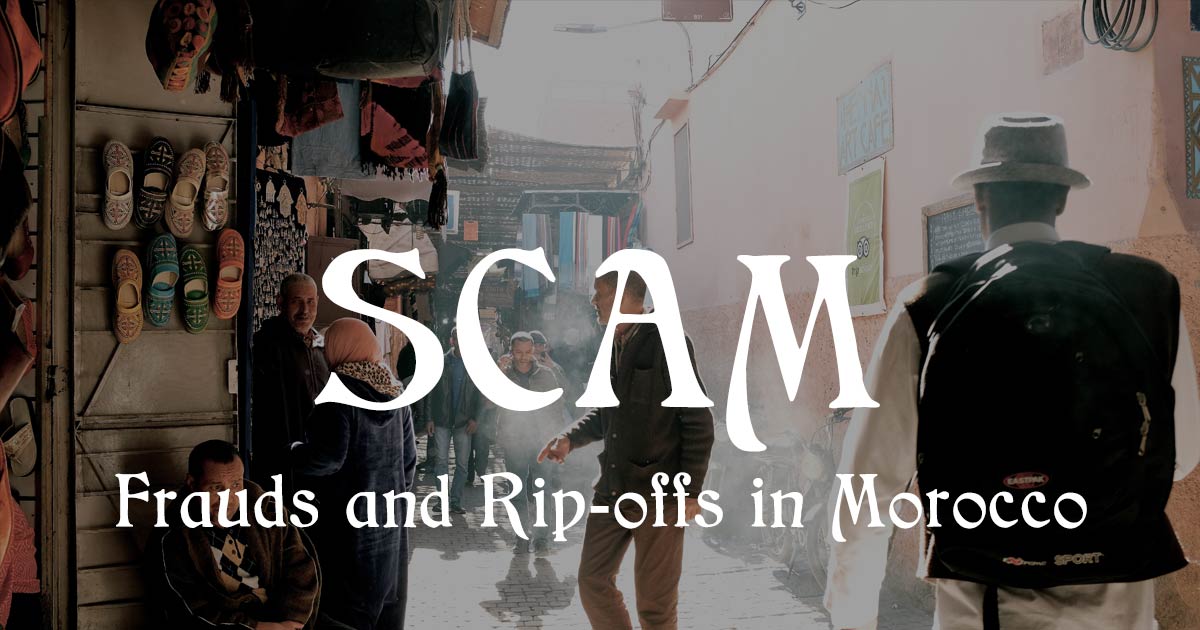
Anyone who is too open to love and then blinded by this emotion risks being the victim of one of the worst scams: Romance fraud. This is when there’s a fake love relationship that goes on for years with the aim of obtaining money or a European residence permit.
Statistically, far fewer robberies or violent crimes are committed in Morocco than in most European countries, making the country a very safe place to travel. In other words, in Morocco, money is not snatched from your pocket, but you can reach for your money and hand it to someone with a grateful smile if you’re completely naïve when embarking on your Moroccan adventure. However, many scams are fairly easy to avoid if you understand how they work.
Common scams and frauds in Morocco
The following is a list of scams and rip-offs in Morocco and some tips on how to avoid them. I’ve personally experienced almost all of these during my travels. I’ve also learned the hard way on many occasions. This list may appear a bit shocking at first glance but you need to work pretty hard to fall victim to multiple scams during your Moroccan holiday.
The helpful stranger
The helpful stranger is by far the most popular trickster in Morocco. This form of rip-off is the main reason for the negative image of the country that I’ve mentioned above. You won’t recognise helpful strangers at first glance. But rest assured, they’ll find you and offer their help.
The classic situation where the helpful stranger appears is somewhere in the medina. If you’re looking a little disoriented and gazing around you, count backwards slowly from twenty. You won’t even make it to 5 until you hear a friendly “Hello”. If you aren’t careful, in the next few moments, you’ll unwittingly book an unofficial city guide who’ll make it quite clear that he wishes to be suitably paid for his guidance.
Rest assured, the helpful stranger will find you.
This fake guide not only knows of a shortcut to where you need to go, but he also knows how to detour through various shops. Thanks to his excellent connections, the helpful stranger can basically provide almost everything you need or can arrange this through a friend or relative: hotel rooms, restaurants, taxis, excursions, city tours, hashish, or simply finding your way back to Jemaa el Fna.
The next typical situation where you’ll encounter the helpful stranger is in an indoor market or souk. A friendly young man will quickly appear by your side to lead you through the labyrinth of stalls and goods. He’ll give you the impression that he knows almost everyone and is involved in all negotiations. This means that every purchase turns out to be more expensive, because, not only does the helpful stranger demand a tip from you at the end, but he also gets paid a commission from the actual seller. I’ll give you three guesses who ultimately pays for this commission due to a higher selling price that’s kindly been negotiated for you by the helpful stranger.
You may not always recognise the helpful stranger as being this type of person. Generally, he’ll start off by getting you to trust him. By offering sound information, he actually seems helpful. However, you can count on the fact that you’ll need to pay for these favours indirectly at a later point. If you don’t pay the helpful stranger, he can sometimes become indignant and occasionally also rude or aggressive to make it harder for you to disappear without paying. Don’t let yourself be pressurised by this type of behaviour. Instead, get used to telling helpful strangers right from the start that you won’t pay them any money.
How to avoid this scam:
- Try not to lose your sense of direction. If you need to consult the city map or navigation app, be as discreet as possible.
- If somebody approaches you in a strange manner, politely dismiss them with a firm “La, Shukran” (No, thank you).
- If the helpful stranger becomes unpleasant, it may help to suggest a visit to the Tourist Police at Jamaa el Fna. After all, it’s illegal to work as a city guide without an official permit.
- If you need to ask someone for directions, approach people who can’t get away like a stall owner or a waiter.
An alternative scenario:
The vast majority of Moroccans are extremely helpful. I’ve rarely experienced such warm hospitality as in Morocco. That’s why I can well understand when Moroccans are disappointed or offended when their hospitality or help are rudely rejected because they’re incorrectly taken for fraudsters.
The henna women
You’ll usually come across the Henna women on Jemaa el Fna. They sit on little stools. In front of them, faded yellowish albums are spread out with various henna patterns. In the more aggressive of these scams, you’ll be called over and distracted. Suddenly, the good woman will start to paint the back of your hand. In her opinion, there’s been a misunderstanding and she should at least finish off the job so that it ‘looks good later’, if you understand my meaning.
If you negotiate a price beforehand, the henna woman will be less pushy but not any less expensive. In this case, be prepared for the price you agree to gradually increase while she’s painting the tattoo.
Henna women on Jemaa el Fna (Photo: Travelguide Marrakech)
These unofficial tattoos are not just pretty ugly as a rule, but they can also turn out to be quite expensive. Since some of these women use black-coloured henna, in the worst cases, these paints can be harmful to your health. The coloured henna can contain toxic chemicals that irritate the skin and can cause allergic reactions.
How to avoid this scam:
- Avoid the henna women on the Jemaa el Fna and keep a good distance away from them.
- If you enter into a conversation with them: keep your hands in your pockets!
- If you’d like to get a henna tattoo, look for somewhere else to get it done. My tip is to go to the Henna Art Café or the Henna Café Marrakech. Both are just a 10-minute walk from Jemaa el Fna.
Photography
Photography is a bit more complicated in Morocco compared to other countries due to two main reasons for this. Firstly, there’s the Islamic image ban. This prohibits the close-up depiction of images of people. On the other hand, many tourists visit Marrakech and want to capture the best moments of their vacation on camera. Since people are constantly taking pictures of Moroccans and dealers and craftsmen working in busy places can often find this irritating.
In Marrakech, this trend is tackled in two ways. Some traders and other individuals attach clear notices that ask for respect and make it clear that photography isn’t welcome. Others make a profitable business out of the western art of staging photographs. The best example of this is the water sellers with their conspicuous hats. You’re most likely to encounter them on the Jemaa el Fna. The water sellers actively call out to groups of people and urge them to get photos taken with them. Afterwards, they expect a generous payment and, when it comes to this, their audacity knows no bounds. I’ve heard stories from tourists who paid 20 Euros for a blurry photograph.
On Jemaa el Fna, you’ll encounter different types of people who are all motivated by money. These include acrobats and street musicians, as well as dentists and storytellers. However, these people can get very touchy if you photograph them secretly and they catch you doing so.
How to avoid photography issues:
- If you want to take pictures of people: always ask for permission and negotiate the best price.
- You can usually take photographs in stores when buying something.
- If someone wants a lot of money for a photo, make your final offer and then walk away if you have to. This usually works.
- On Jemaa el Fna, you’ll get more peace for taking photographs if you take a seat in one of the adjacent cafés that has a rooftop terrace, for example the Café Glacier.
- Never take close-up photographs of water sellers, dentists, street artists, musicians etc. without asking permission.
What you should bear in mind:
Some traders or craftsmen in Marrakech feature in thousands of photos when at work. They form the backdrop to an authentic impression of your holiday and are also popular among keen amateur photographers. In turn, these individuals share their photos on social media or sell them as stock photos. Visual networks such as Instagram have established a new and subliminal form of human exploitation. Therefore, hostile reactions to photographers who are too brazen or really unscrupulous are understandable and justifiable, in my opinion.
Scams involving exotic animals
As in many other countries, animal rights play a minor role in Morocco. You’ll come across examples of poor animal welfare and animal exploitation on the Jemaa el Fna in Marrakech. Every day on the large square, you’ll see showmen with their animals. These include chained monkeys, as well as snakes with their poisonous fangs removed. These animals are often in a pitiful condition.
Two types of animal fraud take place on the Jemaa el Fna. In the more harmless version, someone in traditional costume is sitting on the floor and playing a whistle to charm the snake in front of him. This is still a popular photo opportunity on the Jemaa el Fna and, naturally, is isn’t free. Usually, the snake charmer has a helper who ensures that no one takes photographs without paying. Therefore, it’s mainly a kind of photo scam.
Animal fraud on Jemaa el Fna (Photo: Travelguide Marrakech)
Animal scams can be more intrusive. The pattern is similar to other types of fraud and is based on ignorance, insecurity and ambushing you. If you get too close to these scammers and look interested, you’ll barely notice when a snake or a monkey is placed on your shoulders. Then, someone from your group will be encouraged to take photos.
Needless to say, a generous tip will be due for this snapshot. However, it can work out to be even more expensive if you’ve give your mobile to the animal fraudster and he takes a blurry photo. In the worst case, he’ll refuse to give your phone back until you’ve paid him enough money. If this happens, simply walking away isn’t an option.
There’s a simple trick to protect yourself from animal scams on the Jemaa el Fna: Give these showmen a wide berth. Don’t take pictures of animals that aren’t well cared for or photos of those who profit from animal exploitation. Any donation given to these animal abusers doesn’t help the animals, but only supports their exploitation.
How to avoid this scam:
Unlike most scams, I’ve absolutely no sympathy for deceived victims when it comes to animal fraud. Anyone who allows captive animals to be draped around them or their friends deserves nothing more. In my opinion, anyone who tries to deny this shouldn’t complain when both the captive animals and tourists who support this practice pay a high price.
- Stay well clear of all showmen with animals and don’t support animal cruelty!
- Don’t photograph animals on the Jemaa el Fna.
- Never hand your phone or camera over to a stranger on the main square.
“The Jemaa el Fna is this way”
You’re almost certain to hear this phrase when you’re in the medina. It’s usually commonplace in the northern medina where many tourists visit the Madrasa Ali Ben Youssef or the Maison de la Photographie. The direction that you’ll hear someone calling out can often be correct, but sometimes not.
One thing is certain. In the next instant, a helpful stranger will enter the scene. He’ll either give you some friendly personal advice or have an accomplice who’s going there anyway. Needless to say that at the end of this small city tour, he’ll ask for an appropriate fee.
How to avoid this scam:
- Ignore people telling you that you’re going in the wrong direction.
- Give a friendly nod and move on.
- Don’t loiter about under any circumstances.
An alternative scenario:
While briefly distracted and not paying attention you’ve taken the wrong route. You’ve no GPS signal because the alleyway is very narrow and the houses are high. You can quickly lose your bearings in the medina and find yourself wandering about. In this case, a friendly tip can save you a lot of time and stress.
If the person who wants give you advice isn’t a helpful stranger or his accomplice, but perhaps just a friendly local who sees tourists coming up against the same dead end every day, a harsh brush-off can be very embarrassing and hurtful. So, always be friendly but never naive.
“This road is closed/the gate is locked”
A similar scam involves a closed road or locked gate. This is widespread in Marrakech. Even if you aren’t looking disoriented and are walking purposefully through the medina, at some point, you’ll be approached by a young man or a small group who’ll point out that the upcoming street or gate is closed today.
If you stop in this scenario, you’ll make your first contact with the helpful stranger. He’ll immediately take care of ensuring you get to your destination with his help by taking an alternative route. Of course, he expects a tip for this service.
In contrast to “The Jemaa el Fna is this way” scam, this trick is almost always based on a lie. Gates aren’t locked in Marrakech, at least not during the daytime. Construction work will be cordoned off to preserve the maximum space. Excavation work in the narrow streets of the medina also takes place during normal daytime working hours.
How to avoid this scam:
- Ignore people alerting you to allegedly closed roads or locked gates. In the unlikely event that something is really going on, you’re just unlucky and will have to turn back.
- Make sure you’re very familiar with the way back to your riad, particularly if out and about at night.
An alternative scenario:
Even if you’re new to Marrakech, after a few days, you’ll be able to find your way around the northern medina pretty well. You’ll be able to get from the Jemaa el Fna to your riad without taking any detours and will be confident about finding your way around. However, at night, the empty streets look completely different. It’s dark and all the shops are closed, with their displays tidied away. To make matters worse, there are several large gates in the souks in the northern Medina and these are locked late at night. So, at such times, you may need to go on a detour, which means you may come up against problems, even when using a navigation app.
If you come up against a locked gate at such a time, you may meet a helpful stranger who’ll seize the opportunity to show just how helpful he can be. Or, you might just meet a friendly Moroccan whose good advice will help you out of trouble. In this case, he may be one of the majority of nice, helpful Moroccans who have no intention of guiding anyone through the medina.
Scams while eating on the Jemaa el Fna
I’m not sure if problems occur because the waiters on the Jemaa el Fna have to remember all the orders and often get very busy or if they want a big tip through a bit of clever arithmetic. The fact is that some waiters on the main square are more likely to get confused than others.
On the one hand, they can sometimes bring you more expensive food than you ordered, while on the other hand, they can forget to bring you dishes. This confusion continues until your waiter adds everything up and presents you with the bill. I’ve often found that my bills are incorrect and can easily be 100 DH too much. Then, all you can do is go through the bill item by item and calculate it together. Of course, flatbread, olives and tomato sauce served as an aperitif or side dish will also end up on the bill. At most places, you’ll pay 5 DH for each of these.
How to avoid this scam:
- Take a photo of the menu before ordering.
- Almost all places have a large paper notepad, which is ideal for recording your order.
- Roughly calculate the total amount before asking for the bill.
The restaurant scam
This is an old trick and involves switching the menu, but I’ve never experienced it myself. It’s basically very simple. Standing in front of most restaurants in Morocco are waiters who’ll call out to you and encourage you to sit down to eat. They’ll often extol the virtues of the unbeatably cheap set menu. Then, when the bill arrives at the end of your meal, it will be for an unexpectedly high final amount.
Unlike the tactics used by the arithmetic con artists on the Jemaa el Fna, the bills in this case of restaurant fraud will actually add up. However, they won’t reflect the cheap set menu, but a different menu, which is much more expensive.
How to avoid this scam:
- Read reviews on sites like Trip Advisor before visiting a restaurant.
- Search for recommended restaurants (ask in the riad, or speak to your travel guide).
- Recommended restaurants in Marrakech.
Freshly squeezed orange juice
A glass of freshly squeezed orange juice is the perfect way to enjoy a quick breather in the medina. It’s hard to miss the juice stalls on Jemaa el Fna. Although the juice is a bit more expensive there than in the side streets, most sellers are nice and will be happy to refill your glass.
However, black sheep exist among these juice sellers. They dilute the freshly squeezed juice with water and sometimes even add sugar to it. This is annoying because you actually wanted something quite different. Also, it can be worrying when you’re unsure if the added water is suitable for drinking. To make matters worse, the stalls are slightly raised and many juice vendors stand behind a mountain of oranges, making it hard to see what goes on behind the privacy screen.
Orange juice stall on Jemaa el Fna (photo: Travelguide Marrakech)
How to avoid this scam:
- Ask in advance if the juice is diluted with water.
- Buy the juice from a stand where you can see the preparation taking place.
- If necessary, continue to search for a more promising-looking juice seller in the backstreets of the medina.
Ten dirhams for one Euro?
I’ve never experienced this fraud myself. I honestly can’t imagine that this rip-off is really worth it. Children will commonly play this trick on people. They ask you to exchange a 1 Euro coin they’ve allegedly found for 10 dirhams. The problem is that the coin is a worthless fake. As soon as you hand over your 10 dirham piece, the children disappear as fast as arrived.
Exchanging small change doesn’t necessarily amount to fraud. As a tourist in Morocco, you’re quite often asked to change foreign coins. The background to this is usually that some tourists give change in their native currency to beggars or children. These people can usually do little with it because they can’t exchange such small amounts. I usually go along with these requests. The exchange rate for the currency is 1:10, which is easy to calculate and brings minimal benefit.
But sometimes, the person asking for a currency exchange is actually a helpful stranger. Then, it isn’t about exchanging 50 cents, but a means of making contact with you. The established trust can then open the door to the actual rip-off event.
- When you exchange money, carefully check the currency offered.
- Simply change the money then keep going. Don’t invite an unwanted city tour.
Fraud attempts near the tanneries
The tanneries of Marrakech are a popular photo opportunity. Although they’re more hidden away than most other attractions, many tourists find their own way to the area where the tanneries are located. Often, they’ll be guided to the entrance by a helpful stranger or his accomplice and then taken through the complex free of charge. Unfortunately, they can be abandoned while going through a store and, at this point, pastries and mint tea are already waiting as part of the sales pitch to follow.
The Marrakech tanneries are a bit remote. Because of this, a helpful stranger or his accomplice will often offer to escort tourists his back to Jemaa el Fna. Of course, small, friendly tip is mandatory in exchange for this service.
How to avoid this scam:
- Plan your route to the tanneries with a city map or a navigation app.
- Don’t allow yourself to be confused by false information (“the gate is closed”) and try to find the entrance to the tanneries alone.
- If you accept an offer of tea in a store, the seller will take this as a sign of your intent to buy and will be all the more persistent.
Someone is walking suspiciously slowly in front of you
This fraud is a mixture of various ‘directions’ scams (“The Jemaa el Fna is this way” / “The gate is closed”) and the helpful stranger scenarios. However, this usually takes place without you noticing. On the whole, this fraud is preceded by a little interaction, but not in every case.
The scam works when the trickster approaches you and then immediately walks in front of you. He attentively tracks every change of direction you make and every change of pace. If you stop, he stops. If you turn unexpectedly, it won’t be long before your new companion will appear in front of you again, looking back at you constantly.
At some point, he’ll speak to you and demand payment for the guide service he’s just provided. I’ve rarely experienced this scam. However, the individuals accompanying you on your route can be quite stubborn during final negotiations and sometimes become a little upset when you refuse to pay.
How to avoid this scam:
To check whether a person walking in front of you and constantly turning to look at you is trying to scam you, stop briefly, e.g. to take a photo or change direction and watch how they react. If your suspicions are confirmed, speak to the person and politely explain that you know where you want to go and don’t need a guide. Sometimes, all you need to do is to say that you won’t pay any money for a guide.
Free samples that you then have to pay for
I haven’t experienced this mobile cake seller scam myself, but I’ve heard about it from several sources. To strike up a conversation, you’ll first be offered a free pastry. Not everybody says “no”. While you’re reaching for one, the question will be repeated, but without the mention of the pastry being “free”. Afterwards, these sweet treats can turn out to be surprisingly expensive.
How to avoid this scam:
- If someone offers you a sample and you’re unsure, ask first if it’s really free (“gratuit”)?
Taxi scams
Taxi rides are usually very cheap in Marrakech. However, this industry is also famous for some bad rip-offs. The classic is the allegedly broken taxi meter. If you don’t pre-negotiate a fixed fare for your taxi ride, you’re likely to pay more than if you’d been charged by the taxi metre.
Broken taxi meter in Marrakech (Photo: Travelguide Marrakech)
At the airport, taxi drivers scurry about and will try to talk you into being driven to the city for a fixed price. This price is usually higher than the standard set rate of 100 DH for a Grand Taxi, but many tourists don’t know that.
However, it can be different. When I arrived at the airport in Marrakech in 2004, one of the taxi drivers undercut the standard price and offered the trip for 80 DH instead of 100 DH. On the way into the city, the driver then specified the terms, mentioning that although the journey was only 80 DH, there’d be a 20 DH charge for my luggage – which worked out to be exactly the standard rate overall.
Also, some taxi drivers you might book for an excursion or a longer city tour will include a visit to various shops to earn a sales commission.
How to avoid this scam:
- Only ride in taxis that have a metre. If it doesn’t work, negotiate a low fixed price or move on and wave down another taxi.
- If travelling from the airport to the city centre you don’t have to worry if you use the cheap airport transfer service or airport bus.
“The bus to XYZ isn’t running today”
This is a popular trick by taxi drivers looking for business. You’ll experience it when standing with your luggage near the bus station, train station or airport. Most of the time, you’re approached by a taxi driver or his accomplice. He’ll briefly inform you that your bus isn’t running for some reason – a strike, Ramadan or just because the bus is allegedly full.
Of course, the next bus won’t leave for a long time, possibly even the next day. Fortunately, there’s a solution. Thanks to a fall in fuel prices, today, your taxi journey is offered at a bargain price.
How to avoid this scam:
- Be skeptical if taxi drivers give you information about buses.
- If in doubt, ask at the bus station information desk.
What you should bear in mind:
Sometimes strikes take place in Morocco and then, unfortunately, there aren’t any buses. I’ve already had to spend two extra days in Tangier for this reason. The fasting month of Ramadan ends with the three-day sugar festival (Eid al-Fitr). This holiday period is similar to Christmas. Many Moroccans travel to their families using public transport before and after the festival. In particular, the comfortable buses run by the recommended Supratours and CTM bus companies are full at these times.
Bus station scams
If you approach a bus station with luggage and all the buses are running, a helpful stranger may immediately approach you and ask you where you’re going. He’ll then take you to a bus counter, get you a ticket and accompany you to the bus. He expects a small tip for this service.
So far, this may seem fair. However, the helpful stranger can also be collaborating with the ticket vendor and you’ll pay a higher fare than if you’d gone to the counter on your own. It’s even worse if you’re specifically taken to a particular bus when you wanted to travel on a bus running with a different line.
How to avoid this scam:
- Gather information in advance, e.g. when in your riad, about the approximate price of the bus trip you’re planning.
- Find the stop for the right bus line without any assistance and buy your own bus ticket.
An alternative scenario:
You reach the bus station. The helpful stranger catches you and offers you a seat in the bus that’s just about to leave. Without his help, you’d have missed this bus. So, the 15 DH tip was absolutely worth the two hours of time saved and is a fair deal for all!
Traders and street vendors
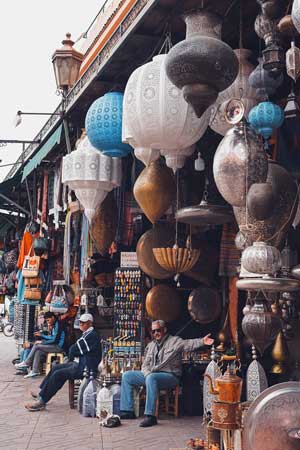
“Hello, do you know what that is? Why don’t you smell it!” So, you stop and quickly smell the assortment of different scented soaps. Many sellers in the souks of Marrakech know their craft well and shopping is fun. Everyone is relaxed yet enthusiastic at the same time.
Haggling inherently involves an astronomically high starting price, which will then reduce in the course of negotiations. This isn’t a rip-off, but part of the rules of the game. It isn’t a sign of rudeness if you come across as a tough negotiator and fight for a good price. Far from it. You can negotiate with a clear conscience, because the seller wouldn’t sell if he wasn’t making a profit.
Normally, you won’t come across cheats among the dealers in the souks, but rather traders with perfect business skills. This includes, for example, serving you tea. Many tourists feel obliged to buy something in the shop after a free hot drink.
How to avoid this scam:
- If you don’t want to talk to every dealer on the street, look at the displays as you pass by and only stop if you’re interested.
- If haggling really isn’t your thing, visit the Ensemble Artisanal near the medina. Some of the items are for sale at a fixed price and you’ll get an idea about the prices of certain goods.
- The staff at your riad can also help you by telling you about the approximate costs of certain items.
- Only haggle if you really want the goods. Don’t haggle for fun.
- Be as daring as the dealers and start your introductory offer at 20-25 percent of the requested price.
- Always behave in a friendly and respectful manner. Haggling should be pleasant for all parties.
Secretly swapping the goods
This type of fraud is very rarely reported and I haven’t experienced anything like it. The scam works when you agree with a seller on a reasonable price for a high-quality product. However, the trader exchanges the goods for lower quality items between your payment and departure. Victims of this fraud have often purchased items like silver trays, rugs or hashish.
- Be alert and don’t let the item you’re buying leave your sight after paying.
- Don’t be distracted by potential accomplices who ask you a question when your item is being packaged.
- If you get a funny feeling, check the goods again while you’re there. Complaining later on is unlikely to be successful with shop traders.
Hashish scams
Morocco is considered to be one of the main exporters of hashish. This intoxicating hemp product is produced in northern Morocco where hemp is cultivated in the remote valleys of the Rif Mountains and processed into hashish. Although hashish in Morocco is relatively widespread, it’s still illegal.
If you consume hashish, you should avoid smoking it in public. A rooftop terrace or outdoors are better places. In addition, be crystal clear that you can’t take drugs home with you when your holiday ends.
There are many myths about hashish in Morocco. Stories used to circulate of roadblocks in the Rif Mountains where people were forced to buy. The dealers are then said to have reported their customers to police officers who were in on the deal and insisted on a bribe.
Today, the reality is much more mundane. If you walk a bit too slowly through the medina, someone may whisper “zero-zero?” to you. If you’re looking for hashish, it won’t take long before you get your first offer. However, in Morocco as in every country, you need to keep an eye out when buying drugs!
Buy something illegal from a stranger on the street represents the worst conditions for this type of purchase. In all likelihood, you’ll receive a smaller amount of a lower quality product and pay a higher price. That assumes you actually get what you saw initially. In addition, you’re leaving yourself open to being blackmailed by a stranger. Therefore, getting involved with hashish is something to seriously consider.
How to avoid this scam:
- If you want to smoke hashish in Morocco despite the fact it’s illegal, don’t buy it on the street, but rather talk to a local acquaintance your trust.
- Ignore or politely reject any approaches by dealers.
- Don’t let strangers invite you to have a drag of their joint in the evenings in the medina.
Bad hotel recommendations
The hotel rip-off isn’t actually a scam, but mainly a bad offer. However, this can have a negative effect on your whole holiday. This scam is very simple. If you’re walking with your luggage through the medina, you’ll inevitably be approached by a helpful stranger. He’ll ask if you already have accommodation or if you’re looking for a hotel.
If you get involved in this game, you’ll be taken to a hotel by the helpful stranger and offered accommodation there. If you’d been looking for a hotel by yourself, you’d probably have chosen a better establishment at a cheaper price. But by now, you’re already there.
The helpful stranger is happy to receive a small commission for his help. If he’s clever, he’ll cash in on the hotelier too. There are hotels that even hire their own people for this scam.
How to avoid this scam:
- Book your accommodation before the trip. You will find a selection of recommended riads of all price ranges in the most beautiful parts of the medina in the Marrakech Riad Guide.
- If you haven’t booked a room, search the guide for streets with hotels in your price range to avoid a lengthy search.
- Always see the room first before you agree.
An alternative scenario:
Many helpful strangers are real networkers and provide other family members with referrals. I’ve been lucky enough to have had the opportunity of meeting families through such third party introductions and have then stayed in their homes, which is priceless experience.
Romance scams and love affair frauds
Using love to deceive someone has many different names: From love scams to romance scams and even marriage frauds – this type of deceit exploits the victims emotionally and financially over a long period of time. Sometimes, these relationships can last for years.
Romance scams take place all over the world where significant differences in income exist between locals and tourists. Love scams are the flip side of a softer form of sex tourism and females usually fall prey to this in Morocco. The other major countries where romance scams take place are Tunisia, Turkey and the Dominican Republic, but hundreds of cases are also reported in Morocco.
Young man with a phone in the desert
In Morocco, women are mainly (but not exclusively) the victims of romance scams. Usually, local men pretend to be tourists who’ve fallen in love with these women. However, they’re actually targeting the assets of the person they’re deceiving or have a vague hope of getting a European residence permit through a potential marriage. The most brazen romance scammers will conduct several relationships at the same time. Occasionally, whole families get involved in this scam when they’re introduced to the new prospective partner and an alleged future relationship.
Victims of romance scams can lose significant assets through this type of fraud and are often seriously emotionally damaged.
How to avoid romance scams:
- Even if someone seems really charming, there’s no reason to be blind to common sense, including when you’re on holiday.
- Don’t give detailed answers to questions about your personal salary or financial status.
- Be careful when it comes to talking about love and marriage after only a short time.
- If you enter into a binational relationship, learn Darija (Moroccan Arabic) as soon as possible.
What you should consider:
I’m reluctant to make hasty judgments about other people’s relationships. Love knows no bounds and nobody can control when it may happen. There are countless European-Moroccan couples who didn’t meet as part of a romance scam and only wanted true love and having a family together. Personally, there are several such binational marriages among my circle of friends.
Payment by credit card and broken card readers
This scam takes place in many countries but I haven’t come across it yet in Morocco. However, I’ve have read about it on Internet forums. As part of this rip off, when you’re paying by credit card, a seller or hotelier may try to claim that the card reader is broken or that your card is unreadable. Sometimes, the amount due will be debited twice or they’ll insist on payment by cash to save credit card fees or commissions for booking through online portals.
How to avoid this scam:
- Only use your credit card at ATMs and don’t pay directly with it.
- If you do actually pay with your credit card, keep the receipts.
- Use online platforms to reserve and pay for your accommodation.
Pickpocketing
Theft is neither trickery nor gambling but simply a criminal act. For thieves, there’s hardly a better place to operate than in the confusing souks of the medina or among the crowds on the Jemaa el Fna. Still, pickpocketing isn’t a huge problem in Marrakech. If you’re careful, you won’t need to worry about this. You’re far more likely to part with your money to a helpful stranger in Marrakech than be robbed by anyone. Pickpocketing has never been an issue for me or my companions in the course of over twenty trips to Morocco.
If somebody is intent on committing theft, they’ll rarely act alone. This is the same everywhere else in the world. Pickpockets usually work in teams of two to four people. Every member has a clear task. One is on the lookout for potential victims and will distract you with a trivial question. A second will block your way and provide a bit of a privacy screen. At that moment, a third party will steal from you and hand over the loot, such as your phone, camera, or wallet, to a fourth accomplice who will then disappear immediately with the stolen goods.
How to avoid this scam:
- Don’t carry more money on your person than you need to.
- Keep your valuables in the hotel. The better hotels provide safes.
- Keep your money in various places and sort it by small change, small notes and large notes.
- Leave your passport in the hotel and just take a copy.
- Your back pocket isn’t a safe place for mobile phones or wallets. Carry these in your front pocket or in another place.
Skimming and ATMs that have been tampered with
So far, I haven’t heard of any cases of skimming in Morocco. I’m mentioning this scam just to ensure I’ve covered everything off, but you don’t need to be overly concerned about it.
Skimming works by using a visual device and internal laser card reading device attached to the card slot on the ATM. The inserted bank card is read by the illegal laser device and forwarded to the original card reader. Account details are then read and stored without the card owner even noticing. The PIN entry is recorded with a camera or captured by a phone camera. These might be in several places:
- On a specially-adapted type of veneer placed over the PIN keyboard on the ATM.
- Hiding in a dummy smoke alarm on the ceiling.
- To the side, e.g., in a catalogue stand that’s been tampered with.
Other tricks are used to get the PIN such as using a realistic dummy keyboard as well as a card reading device with an integrated camera. The harvested data is then used to make copies of bank cards that allow offenders in non-European countries to withdraw money from their victims’ accounts. European ATMs usually don’t allow counterfeit bank cards to be used.
How to protect yourself against skimming:
- Avoid using ATMs in dark, remote locations.
- Don’t use ATMs if you notice something unusual, such as a cover attached, protruding or loose parts or traces of glue around the card slot.
- Make sure you enter your PIN without anyone seeing you. Take note of how far away the next customer is. Covering the keypad with your hand while entering your PIN makes it harder for a camera to spy on you.
- Do you have several bank cards? Use a different one to open the door than the one you use to withdraw money.
- Never enter your PIN into a door opening system at a bank. No financial institutions require a PIN to access their ATM facility.
Conclusion: How to deal with these scam and avoid them
As banal as it may sound, my best recommendation is not to be an easy victim. Don’t behave like someone who is easy to take advantage of. If you stop along a busy road with a big city map in your hand and look disoriented, you won’t have to wait long for a helpful stranger to appear. That’s a certainty. If you use any form of service, first agree on the price as you’ll have far fewer nasty surprises.
Fortunately, after more than 20 trips to Morocco, I rarely have to worry about scams anymore. On the one hand, I’ve changed my attitude to certain things and, for example, I no longer expect to pay the same price everywhere as the locals do. On the other hand, I take today’s scams in my stride. I recognise helpful strangers and am almost happy to encounter them. I just give them a complicit nod so they understand they won’t succeed with me. If they get too pushy, I hand them a business card and go on my way.
I rarely get annoyed at the sometimes very clumsy attempts to get my money and smirk at most of the tricks people use. I think it’s legitimate to make a living from minor price inflations or active redistributions from the rich to the poor. However, I get really annoyed if people take me for a fool and think I’ll be easy an easy target.
If you’re aware of the most common scams and have learned to avoid them and stand up to them, you’ll have far fewer problems and can then fully focus on your Moroccan holiday. So, enjoy your trip!
Have you experienced a scam in Morocco that isn’t on this list? If so, please leave me a comment and tell me about your experiences.


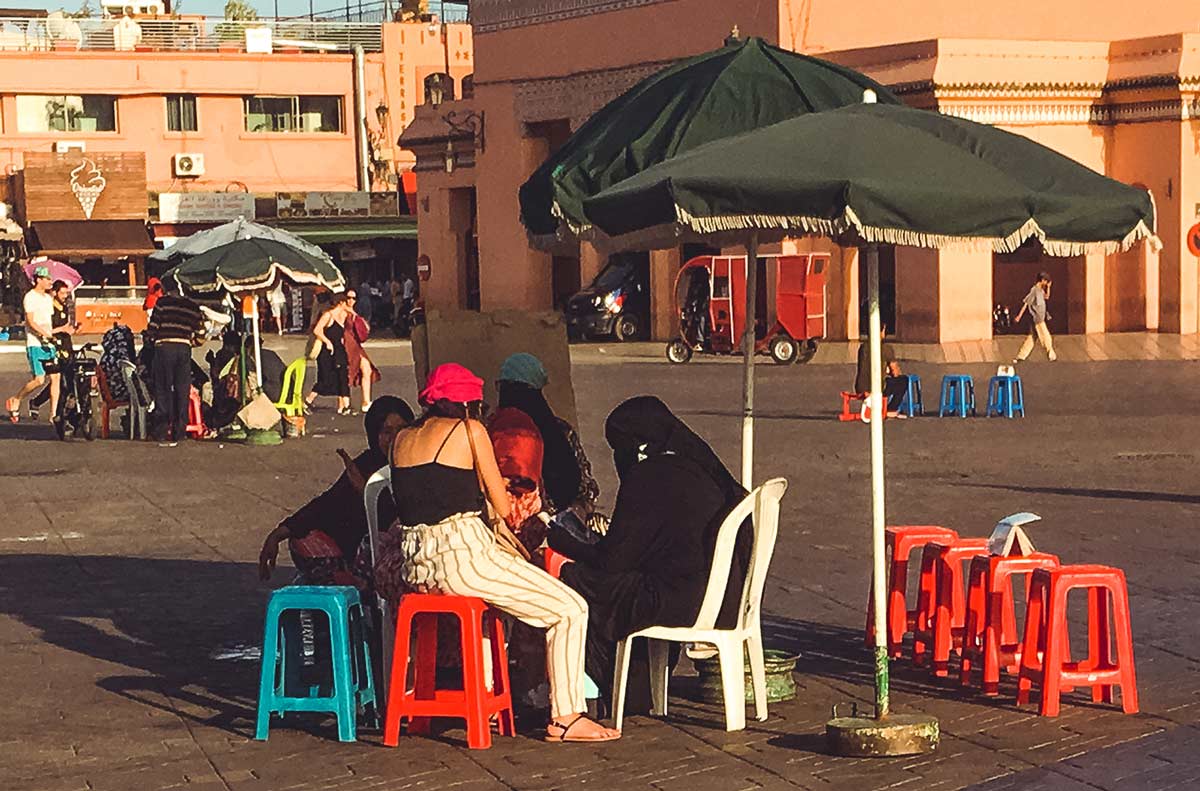
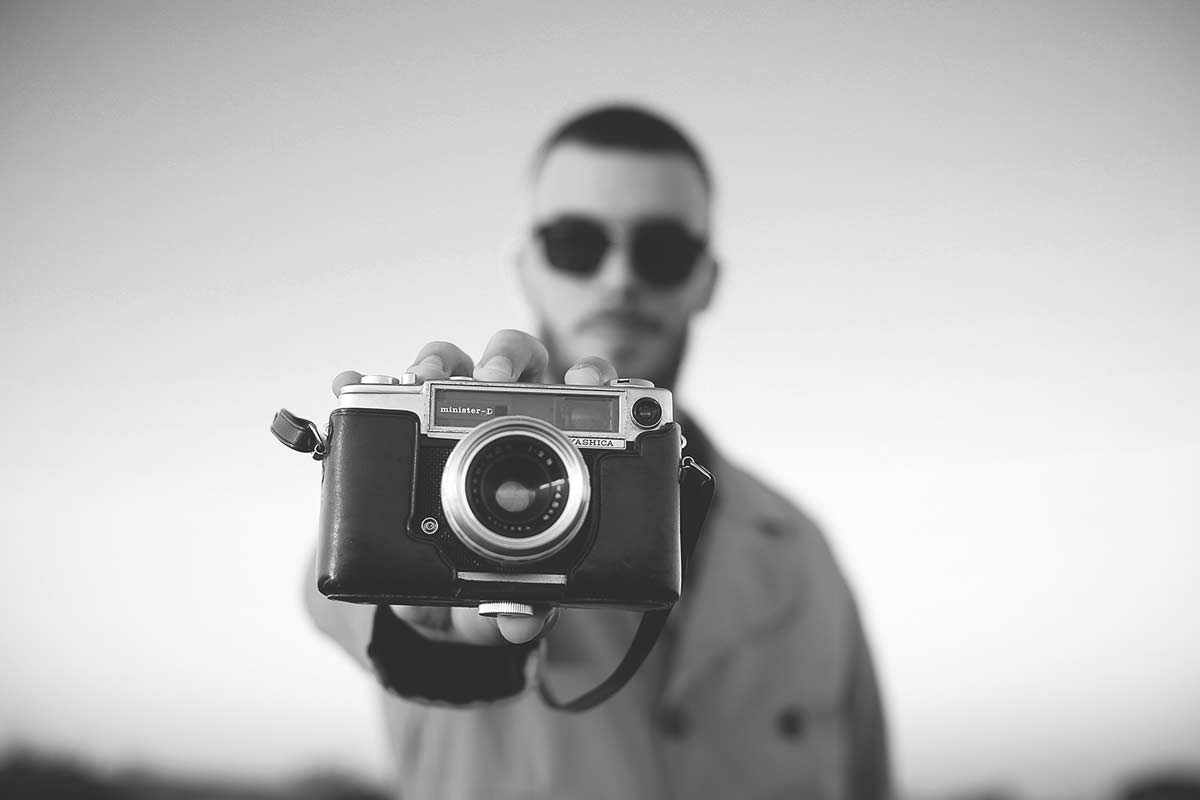
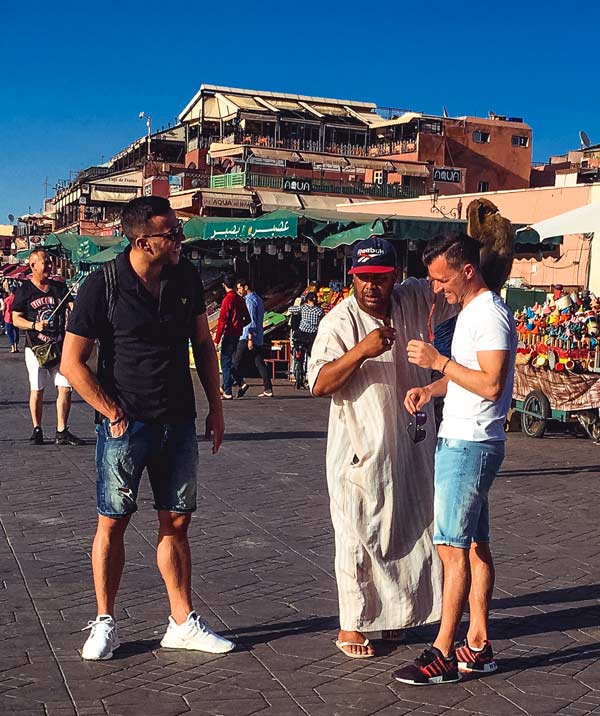
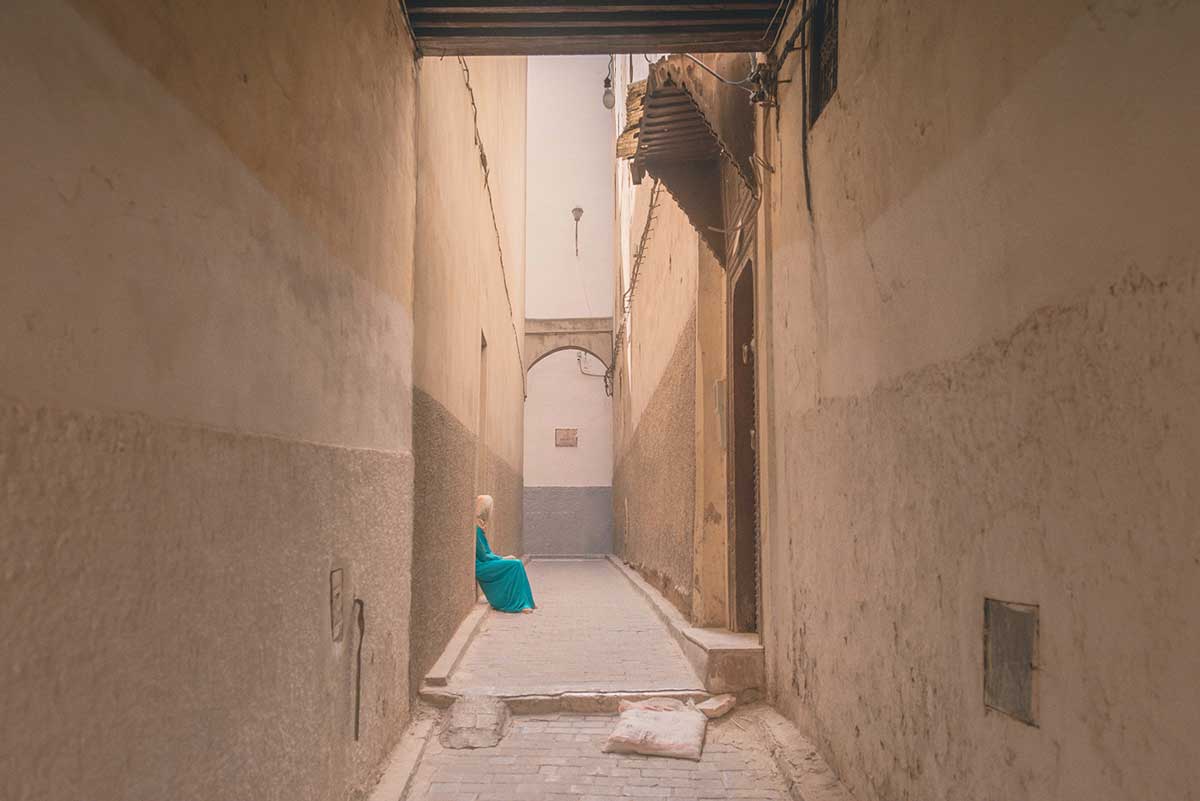
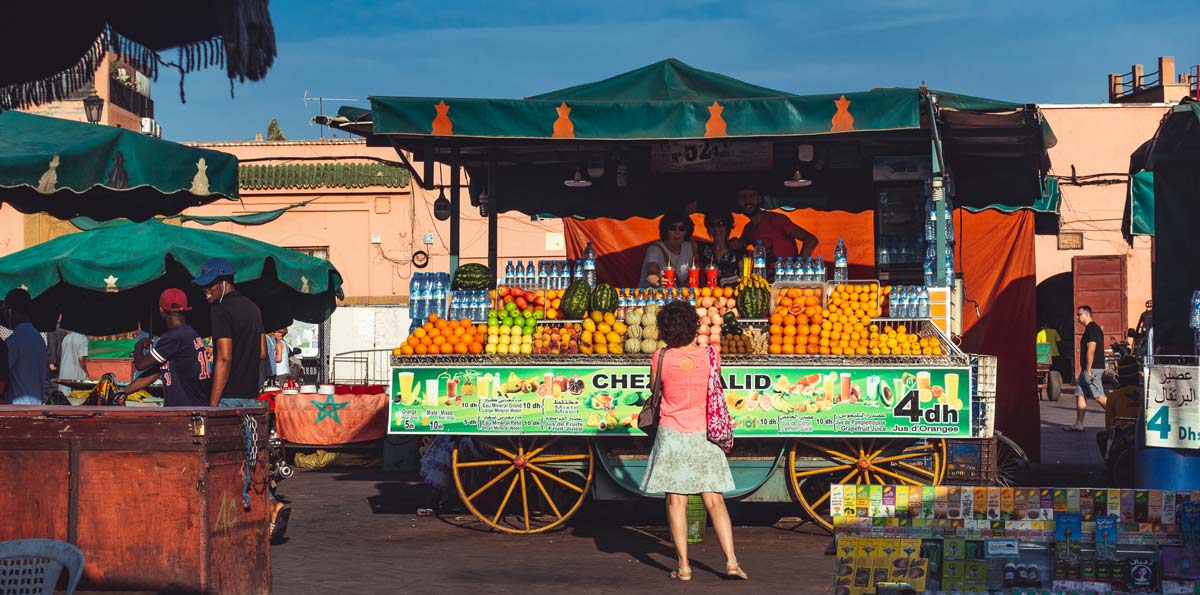
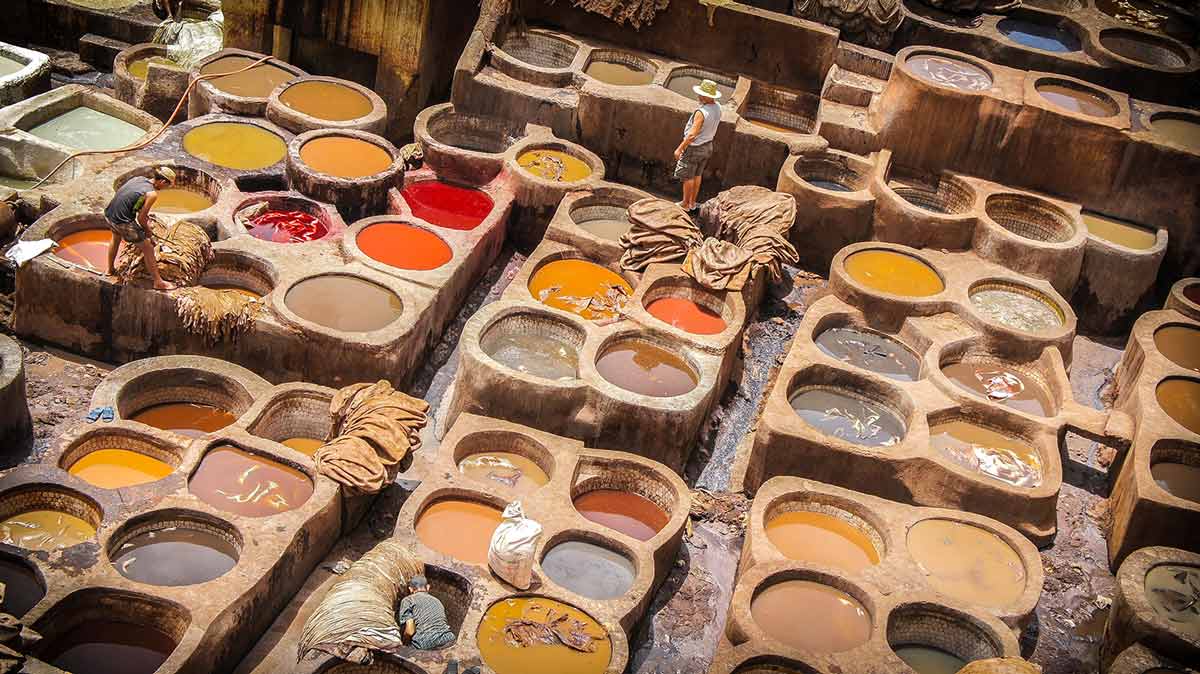
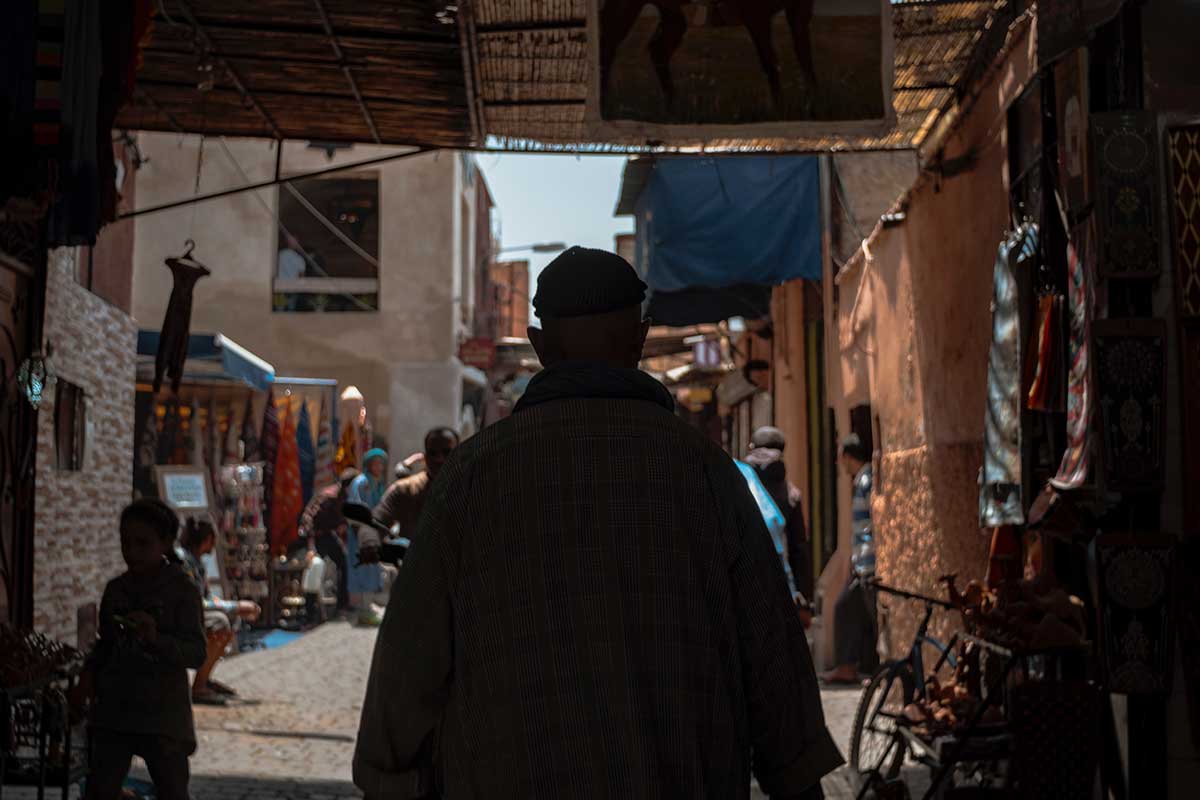
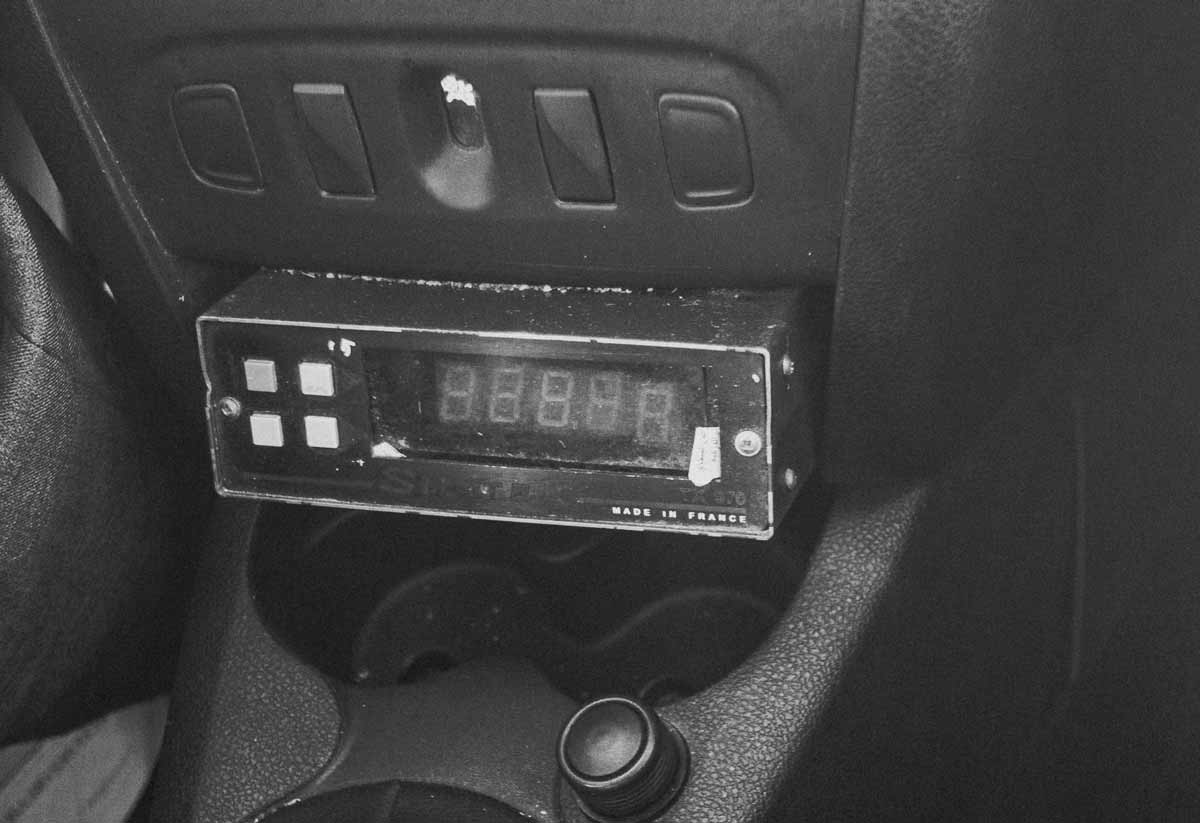
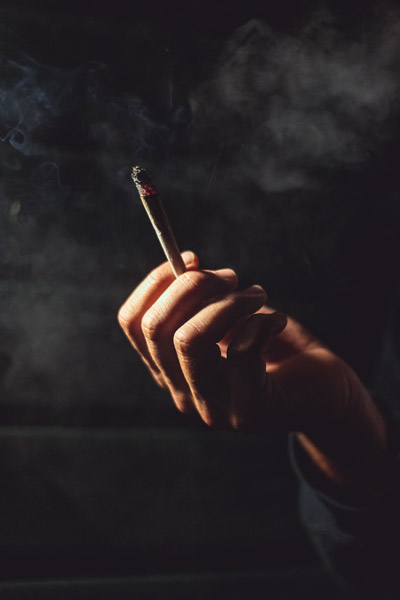
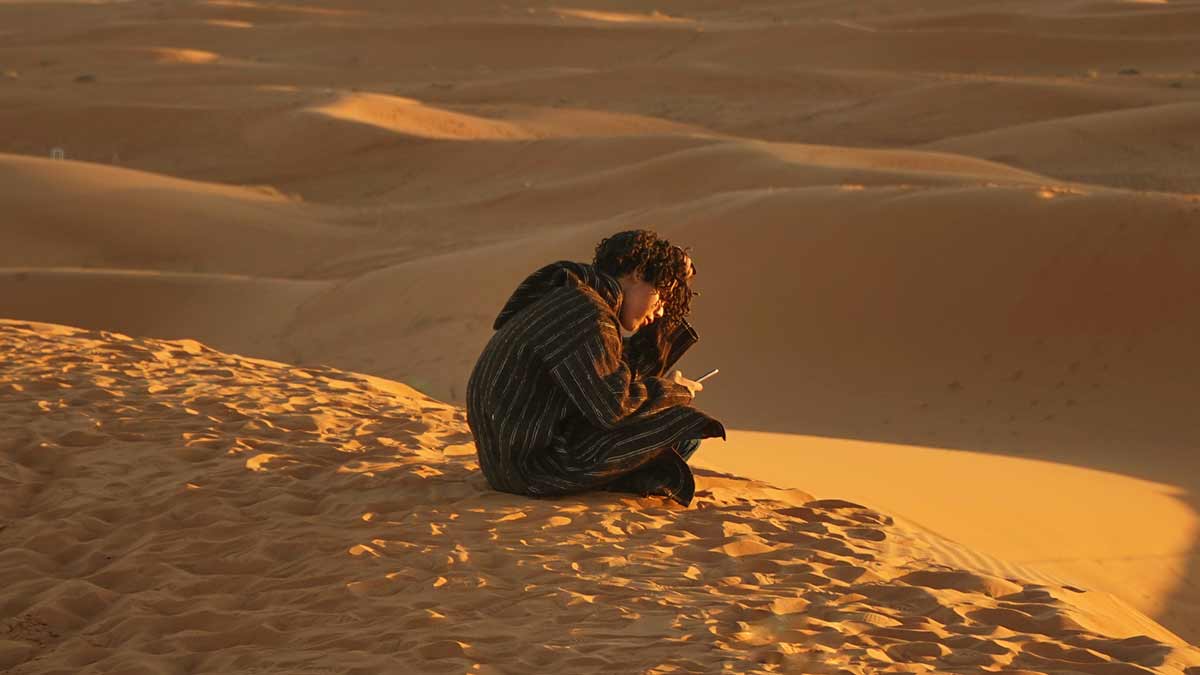
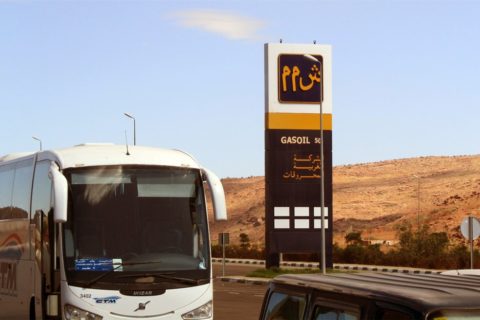
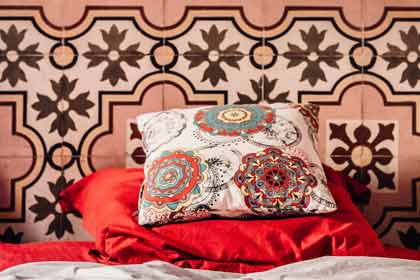
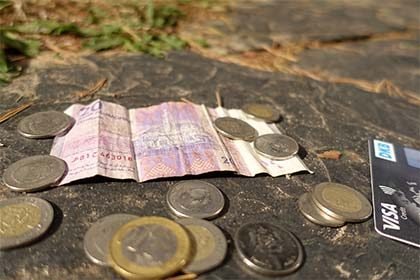
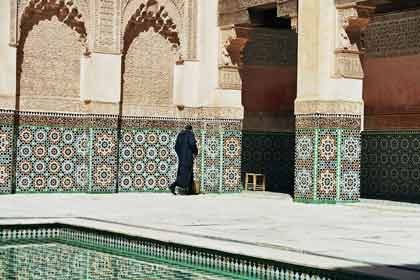
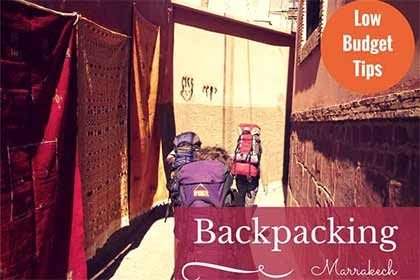
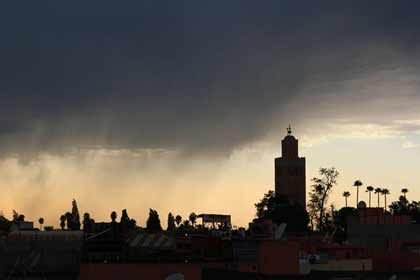
MARRAKECH DANS LA PRESSE INTERNATIONALE, LE CÔTÉ SOMBRE DE SES HÔTELS 5* ! :
https://agencedepressepanafricaine.com/maroc-arnaque-de-touristes-lhotel-kenzi-rose-garden-a-lindex
Le paragraphe concernant les réseaux sociaux corrompus, je l’eclaircis il s’agit de Facebook, TripAdvisor….!?
Veuillez publier SVP, partager pour avertir les gens. J’ai des preuves et dans l article et chez moi. Merci
The bottom line is very simple; you can find scams, rip offs, cheating in every country in the world including the so called first world countires, the US, all European, the UK, middle eastern, well developed Asian countries, Japan, Sth Korea, SInagpore, etc.
I come from Australia, every year there’s reports re tourist rip offs. The authorities are serious to try to control cheating, scams, rip offs and they put a lot of professional resources, monitoring in place. It still happens.
Why? Simple answer; dishonest people are in every country and local laws try to control them but can’t. Just be aware and take simple obvious precautions, use simple logic.
If in doubt back away and disappear. This is life!
Totally got burned in Fes. Guide took me to ceramic factory where dedicated trained artisans produce quality items. Got high pressured into buying garbage. Shop in Marrakech and get good deals on bowls. My husband ready to kill me. Experience ruined my trip. Also guides take you to their friends who Im sure give them kick backs. Bargain on your own in a different shop.